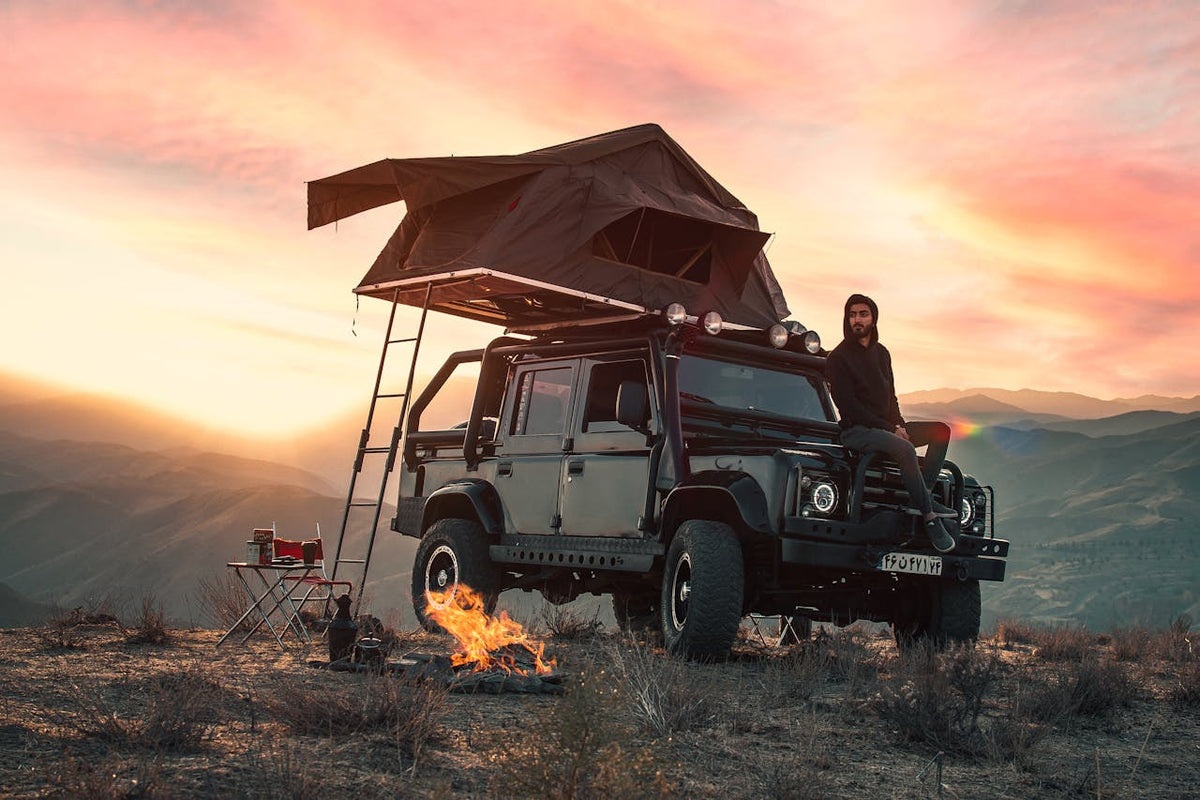
The Psychology Behind Solo Camping
|
|
Time to read 6 min
|
|
Time to read 6 min
In recent years, solo camping has gained significant popularity as more individuals seek opportunities to disconnect from their hectic lives and reconnect with nature. This growing trend is not just about enjoying the great outdoors; it also provides profound psychological benefits that can enhance well-being. As society becomes increasingly fast-paced and technology-driven, many people are recognizing the value of spending time alone in nature as a means of rejuvenation and self-discovery. Understanding the mental health aspects of solo camping can help individuals leverage these experiences for personal growth, emotional resilience, and enhanced mindfulness.
Engaging in solo camping can lead to remarkable improvements in mental health. The act of being in nature has been shown to reduce anxiety and stress levels significantly, allowing individuals to escape the pressures of daily life. Studies indicate that spending time outdoors can lower cortisol levels—often referred to as the stress hormone—leading to a more relaxed state of mind. The solitude of camping alone provides a unique opportunity for introspection, promoting emotional healing and a deeper understanding of oneself.
Solo camping fosters a sense of independence and self-reliance. When individuals embark on a camping trip alone, they encounter challenges that encourage personal growth. Navigating through unexpected situations—such as setting up a tent in inclement weather or encountering wildlife—enhances problem-solving skills and boosts confidence. Moreover, the isolation allows for moments of reflection, which can lead to self-discovery and a better understanding of one's goals and aspirations. As campers engage with their surroundings, they often find clarity regarding their life’s path.
Mental preparation is essential for a successful solo camping experience. Before setting out, take time to visualize your journey, considering both the challenges and the rewards. Embrace a positive mindset, acknowledging that obstacles are part of the adventure. Reflect on what you hope to gain from the experience—whether it’s relaxation, clarity, or simply a break from routine. Journaling about your feelings and expectations can also be beneficial; this practice helps articulate your thoughts and prepares you for the emotional landscape you may encounter in nature. Setting clear intentions can greatly enhance your experience, allowing you to focus on personal growth and introspection.
When camping alone, ensuring your safety is paramount. Pack essential gear that caters to your needs, including a reliable tent, sleeping bag, and cooking equipment. Make a checklist to ensure you don’t forget crucial items like a first aid kit, navigation tools, and appropriate clothing for varying weather conditions. Familiarize yourself with the camping area and have a plan in place for emergencies, such as knowing the nearest help centers or having a way to communicate if needed. Sharing your itinerary with someone you trust is also crucial. This way, someone will know your location and plans, providing an extra layer of security. Always trust your instincts; if something feels off, it’s okay to adjust your plans.
Mindfulness is a powerful tool that can significantly enhance the solo camping experience. Practicing mindfulness involves being fully present in the moment, allowing you to appreciate the beauty of nature around you. Techniques such as deep breathing, meditation, or simply observing your surroundings can help ground you in the present. Consider setting aside time each day for mindfulness practices; this could be a morning meditation by the lake or a mindful walk through the woods. Engaging your senses—taking note of the sights, sounds, and smells—can deepen your connection with nature and enhance your overall experience, making the camping trip not just a getaway but a transformative experience.
One of the most rewarding aspects of solo camping is the opportunity for personal reflection. Bringing a journal allows you to document your thoughts, feelings, and experiences during your trip. Writing in nature serves not only as a creative outlet but also as a means to process emotions and insights gained from your time alone. Create a ritual around journaling, such as writing each evening while watching the sunset or in the morning with your coffee. Reflecting on your journey can lead to valuable revelations and growth, making your solo camping experience even more meaningful. Consider prompts that encourage deeper thought, such as “What did I learn today?” or “How did nature influence my mood?”
In conclusion, solo camping offers numerous psychological benefits that can lead to improved mental health, personal growth, and mindfulness. By preparing mentally and physically for your journey, you can enhance the richness of your experience. Whether you seek clarity, creativity, or simply a break from the daily grind, solo camping is an excellent avenue for rejuvenation and self-discovery. Embrace the adventure of camping alone and unlock the potential for profound personal transformation. As you pack your gear and prepare for your next trip, remember that nature awaits, ready to offer its healing embrace.
Solo camping can significantly reduce anxiety and stress, improve mood, and promote emotional healing through a connection with nature.
The solitude allows individuals to reflect on their thoughts and feelings, fostering a deeper understanding of themselves and their goals.
Essential gear includes a reliable tent, sleeping bag, cooking equipment, navigation tools, a first aid kit, and personal items like a journal.
Engage in deep breathing exercises, meditation, and mindfulness walks, allowing yourself to fully immerse in the sights and sounds of nature.
Yes, with proper planning, safety precautions, and informing someone of your itinerary, solo camping can be a safe and rewarding experience.

